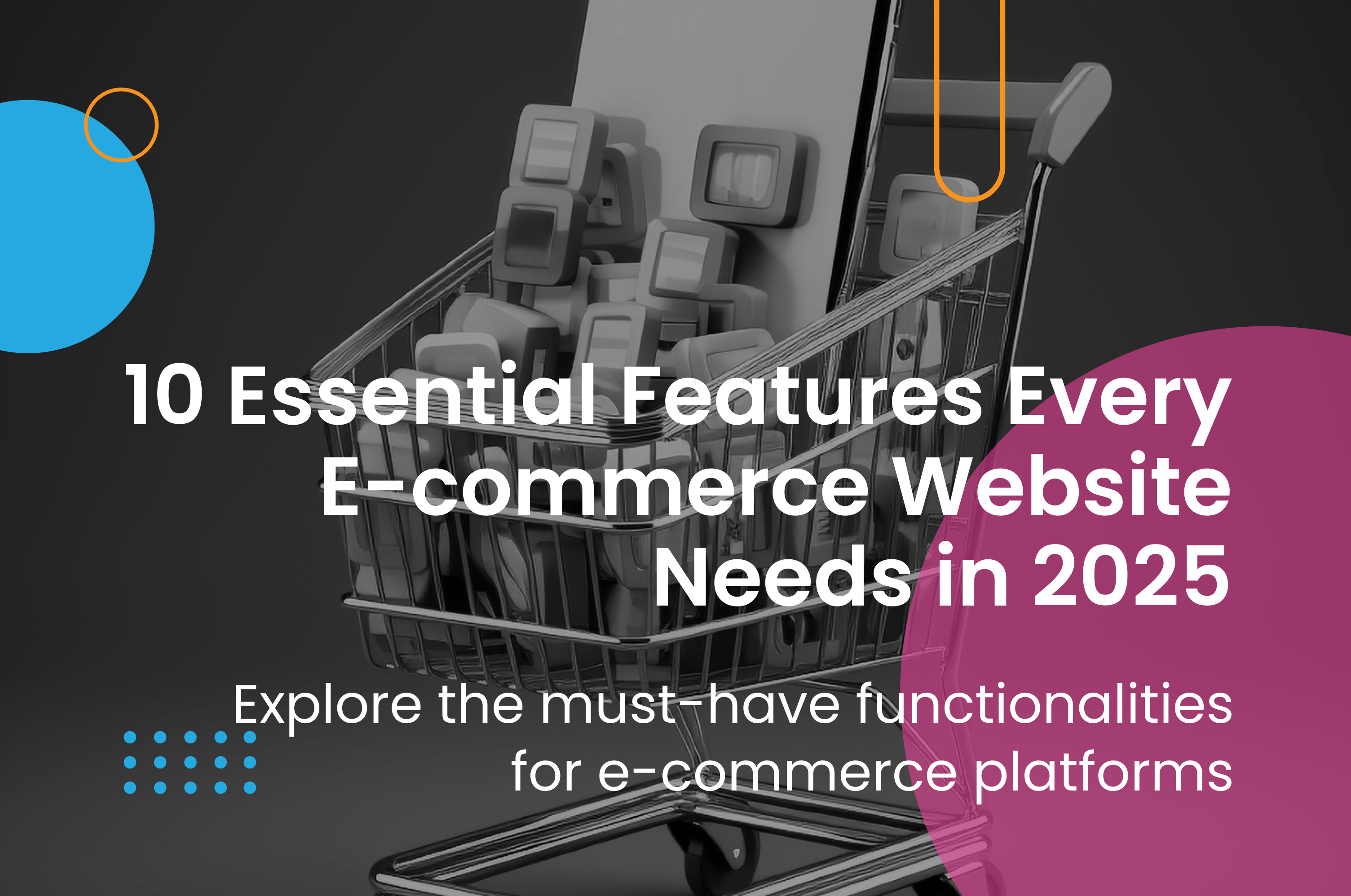10 Must-Have Features for E-commerce Websites in 2025
April 14, 2025

Driven by shifting customer tastes and rapid technological developments, e-commerce remains one of the fastest-evolving sectors. One thing is clear: simply having an online business is no longer enough.
Today's digital consumers expect flawless, secure, and personalized experiences that make their journey simpler, faster, and more delightful. To stay competitive, businesses need to focus on the features that build trust, elevate user experience, and turn browsers into buyers. Below are ten key elements every e-commerce website in 2025 should prioritize to stay relevant and in business.
1. AI-Powered Personalization
Beyond the hype, artificial intelligence has become essential for any serious e-commerce operation. By 2025, AI will help businesses analyze consumer behaviour, browsing patterns, and purchase history to deliver tailored content, personalized product suggestions, and smarter search results. This level of customization doesn't just improve the experience. It strengthens brand loyalty and significantly increases the chances of repeat purchases.
2. Voice Commerce Integration
Smart speakers and voice assistants are no longer niche. They're everyday tools. Voice shopping is becoming mainstream, allowing users to search for products, track orders, and even make purchases using natural language. To meet the expectations of hands-free shoppers, websites must become voice search-friendly, and product data should be optimized for conversational queries.
3. Mobile-First Design
A mobile-first approach is no longer a trend. It's a requirement. With smartphones making up the majority of internet traffic, e-commerce sites must deliver fast, responsive, and user-friendly experiences across all mobile devices. That includes streamlining checkout, optimizing images and text for smaller screens, and designing intuitive navigation on the go.
4. Progressive Web Apps (PWAs)
Progressive Web Apps offer the best of both worlds—the speed and engagement of a mobile app, accessible right from the browser. PWAs load fast, work offline, and can send push notifications, all without requiring users to download anything. This makes them incredibly effective in markets with unstable internet connections and ideal for increasing engagement and retention.
5. AR and VR Shopping Experiences
Augmented and virtual reality are transforming online shopping. Whether customers can try on clothes virtually or visualize furniture in their homes, these technologies help them feel more confident in their purchases. AR and VR reduce uncertainty, increase trust, and significantly lower return rates, especially in categories like beauty, fashion, and home decor.
6. Advanced Payment Options
A seamless checkout experience is essential to reducing cart abandonment. By 2025, customers will expect to pay via credit cards, digital wallets, Buy Now Pay Later services, and even cryptocurrencies. Fast, secure, and user-friendly payment gateways, supported by biometric authentication like facial or palm recognition, offer peace of mind and a frictionless buying process.
7. Eco-Friendly and Sustainable Features
Sustainability is no longer a bonus. It's part of the buying decision. E-commerce brands that stand out in a crowded marketplace will be those offering carbon-neutral shipping, eco-friendly packaging, and transparency about sourcing and production. Being upfront about your environmental values helps build trust and resonates with purpose-driven consumers.
8. Social Commerce Integration
Social media is no longer just about marketing. It's a sales channel. Integrating shoppable posts, influencer-led product showcases, and user-generated content creates a seamless path from discovery to purchase. Features like live shopping and easy social sharing also increase engagement and reach.
9. AI-Powered Chatbots and Customer Support
Consumers today expect immediate support. AI-powered chatbots are available 24/7 to handle FAQs, guide users through the buying process, and escalate more complex queries when needed. By 2025, these bots will be smarter, more context-aware, and multilingual, making them a critical part of modern customer service.
10. Real-Time Analytics and Performance Monitoring
Data-driven decision-making is essential to e-commerce success. Real-time analytics provide insights into customer behavior, product performance, and conversion rates. With tools like heatmaps, funnel tracking, and A/B testing, brands can constantly optimize their websites to improve user satisfaction and drive better results.
Future-Proof Your E-commerce Business with Mango Technologies
The future of e-commerce is all about building meaningful, user-focused experiences. From voice commerce and AI-driven personalization to AR-powered shopping and sustainability initiatives, every touchpoint matters.
At Mango Technologies, we specialize in building high-performance e-commerce platforms with these essential features and more. Our team of developers, designers, and digital strategists works closely with each client to create custom solutions that are secure, scalable, and designed for long-term success.
Whether you're launching a new store or upgrading an existing one, we can help you create an e-commerce experience built for 2025 and beyond.
Ready to evolve your e-commerce strategy
Partner with Mango Technologies to bring your vision to life. Book a free consultation today!
